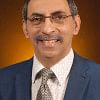How religious norms can support development

It is one thing to explore the connection between religion and development, and another to take it for granted and find out ways in which religion can contribute to economic development, deal with social disorders and promote overall welfare of the people. The major religions in terms of number of followers, as far as I understand, have no conflict with development as long as it is for the people, the poor, disadvantaged, exploited, vulnerable and the like. Most religions have no problem with such things as attaining food self-sufficiency, modern education including girl's education, ensuring employment and earning reasonable income, to provide adequate health services, meeting basic needs including housing for all, poverty reduction, etc.
In Bangladesh, historically, Muslims had a very low literacy rate because religious norms prevented education and mass literacy. However, the people caught up once the strong support for education ingrained in the religious scriptures became known to them. This, however, did not happen automatically. The government and non-governmental organisations had to elucidate the value of education in Islam by involving institutions like mosques and madrasas, and by convincing the imams, religious teachers and scholars, who ultimately disseminated the positive messages about education to the society.
In the same way, religion-based justification was given to promote fertility reduction, not only in Bangladesh, but also in other Muslim majority countries. Female education has helped in lowering fertility rates thereby attaining smaller average family size, and improved living standards. Having said this, we cannot say that there is no superstition, mis-information and mis-interpretation of religion and that there is no hindrance to development. When religious interpretations take ultra-conservative views, it acts against innovation and development. In order to ensure that religion becomes a complementary factor in development, we should look for elements in religion that promote positive change.
The preoccupation of the capitalist system with profit maximisation as its goal is now being questioned seriously by religious scholars since it benefits a small minority of the population. The faster rate of economic growth in the emerging economies together with rising income inequality in many countries which threaten our future and the general wellbeing of the populations, is not in line with religious spirit. There has been increased interaction within the inter-faith groups on emerging global challenges like exclusionary growth phenomena, climate change, gender disparity and violent conflicts. In early 2020, the global religious leaders met at the World Bank to call for and commit to ending extreme poverty by 2030. The Filipino Cardinal Luis Antonio Tagel, who has been the head of Caritas International since 2015, exhorted the business leaders to help address poverty by including the poor in their vision and mission statements, and produce the goods and services they need. The Roman Catholic Church's position is also not blindly pro-business: it is calling businesses to work for poverty alleviation and move away from unfettered pursuit of money. Religious groups, to set examples, are doing different things with their limited financial resources, to reduce poverty and vulnerability, in many parts of the world.
The Muslim faith is based on the importance of a set of good deeds which include pursuing productive activities, hard work, profit, fair distribution of wealth, equity, honesty, justice and right to inheritance of property, in relation to economic aspirations. As stated in Surah An-Nahl verse 97: Allah has promised that "whosever does righteousness, whether male or female, while he is a believer, will be surely given a good life not only in this world but also hereafter". This verse encapsulates, in essence, the value of human progress and welfare in this world to receive its rewards in the "world after".
Similarly, in Hinduism, the work that is honest and dedicated to the well-being of the people and is supposed to free oneself to attain freedom of the soul, has been highlighted by Swami Vivekananda, the acclaimed Hindu philosopher.
Religious faith, different aspects of religion and personal beliefs associated with religion, or even traditional values drive the actions and interactions of individuals. In some countries, there was strong religious sentiments against vaccination efforts and lot of information and communication campaigns had to be carried out by the government to free the minds of the people of such prejudices by showing that there was nothing in religion against vaccination since it reduces morbidity and mortality rates.
There is near universal support among religious leaders in favour of savings and entrepreneurial activity as well as social capital, environmental preservation and human capital development. Many people who follow one religion or the other today, care about the society they live in, and do not equate religion with only a contemplative affair. This attitude is positively contributing to social and economic progress, and is the outcome of both institutional and non-institutional education and learning. As per a global survey, 65 percent of respondents felt comfortable and closely related themselves to religious beliefs. Given the importance religion plays in the lives of people, their beliefs and practices have to be considered in developmental thinking, and when necessary, have to be discussed, if the predominant religious thinking tends to block social change. As religion has significant value in people's lives, religious views should be respected.
Since development touches everybody in society in one way or the other, the development process should thus be informed about religious norms for maximising its outcomes. In our society where several religions are practiced, no preference for one religion over others should, however, be made. There are common messages in all religions such as honesty, dedication to work and tolerance. In today's world, where corruption is rampant and which did not go down even during this Covid time, waste of common resources and public money is the popular trend, environment is under threat, and fundamental values of the human soul are deteriorating, religious messages are still pertinent to development of just, equitable and inclusive societies.
Dr Nawshad Ahmed is an economist and urban planner.

 For all latest news, follow The Daily Star's Google News channel.
For all latest news, follow The Daily Star's Google News channel. 



Comments